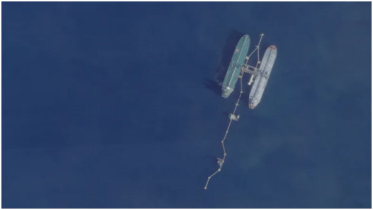Economic Diversification, Global Market and Bangladesh

So far as Bangladesh’s economic tapestry is concerned, the last few years have been a real roller coaster. Russia-Ukraine conflicts worsened the conditions already affected by the Covid-19 pandemic. As a matter of fact, the devastating corona outbreak took heavy tolls on the financial health of the globe including Bangladesh.
However, we should be grateful for small mercies that Sheikh Hasina, as the premier and the leader of 170 million people of Bangladesh rose to the occasion, and cushioned her country from the worst effects of recession worldwide. Nonetheless, though there is no danger of a collapse of the economy at this moment in time, we are having to trudge slowly with numerous challenges and threats at our heels.
Given the conditions of the post-LDC economic journey of Bangladesh affected by external shocks, our readymade garments and remittance-driven forex reserves needs to be revamped in order to hit the 100 billion target, and become an economic powerhouse. The country’s export basket is in urgent need of a robust diversification.
Our export basket, rooted in traditional tea and jute exports, was plagued by recurrent floods and ever-shifting global demands. Though Ready-Made Garments (RMG) emerged as a game changing sector, due to local and global circumstances, it is not yielding expected returns. In addition, though our remitters are a comfortable cushion against our financial problems, due to the lack of proper reskilling and upskilling, they are not being able to outshine their counterparts. It is a nice irony that we have an enormous pool of manpower, but we are not being able to fully leverage our human capital.
As realisation dawned, we could understand that too much dependence on any particular sectors may put the country in a vulnerable position. Strategic economic diversification is pivotal in safeguarding the economy against external shocks. And hence, we shouldn’t rely solely on our traditional industries like jute, tea and even ready-made garments, agro-industry, leather goods etc.
Many more avenues are being open to us. We should explore each of them until our export basket is immune to local and global economic conditions. Other than garment items, many non-traditional products can play a vital role in augmenting export earnings. Mention may be made here that in the fiscal year 2022-23, Bangladesh earned $55.55 billion from merchandise shipments.
Bangladesh has set itself a goal of achieving Developing Country status by 2026. But we have to awaken to the prognosis that our trade facilities may shrink, foreign grants may decrease and opportunities for concessional loans may reduce in the future. RMG and pharmaceuticals may face strains due to the loss of Generalized Special Preferences and Trade-related Aspects of Intellectual Property Rights. To save our economy from all these potential economic onslaughts, we should keep exploring new market opportunities.
Bangladesh can also offer excellent potential for establishing intermediate industries supporting big companies where parts of machinery, equipment, accessories, part-products could be manufactured. With the establishment of intermediate industries, we may be able to see a spill-over effect on the economy. It would be possible because of the competitive edges that we are enjoying now. However, apart from readymade garments, there could be intra sectors like undergarments, accessories, labels, hats, socks, stockings, scarfs etc.
Another area that I believe holds immense potential for Bangladesh’s economic resilience, is the Blue Economy sector. With our long stretches of unspoiled coastline and considerable mineral resources, tapping into blue economy can explore new avenues for economic growth, innovation and sustainability. Investment in sectors like fisheries, port and shipping, aquaculture and marine tourism, can help to bolster up our economy, and promote environmental conservation as well.
Moreover, the importance of the service sector cannot be denied. Bangladesh has a vast pool of talent, particularly in areas like freelancing and training. Fostering and leveraging these skills can position Bangladesh as a global hub of services offering high quality solutions to clients worldwide. This not only fosters our competitiveness but also creates opportunities for youth employment and entrepreneurship.
For a steady transformation of Bangladesh’s economy from unipolar export orientation to a multipolar diversification, here are some recommendations.
The export-oriented industries need to be financially supported. The private commercial banks may come up with providing loans for them. The new export items in particular should be granted loans on the basis of priority.
In addition, export development funds may be created for providing venture capital in the form of private equity financing, i.e. money, technical or managerial expertise provided by investors to startup firms and early-stage and emerging companies with high and long-term growth potential. The government, like many other countries, may allow duty-free import of capital goods for all export-oriented industries. Besides, free trade agreements may be implemented for boosting export.
Labour export destination should also be diversified. The focus should be shifted from the gulf countries to other countries especially the developed ones including the U.S., Canada, Australia and the like. There should be state-of-the-art training institutions to train and prepare our labourers to evenly match the global workforce. We know for certain, our problems are many. But we have the potential for solution.
Source: Daily Sun
.png)




